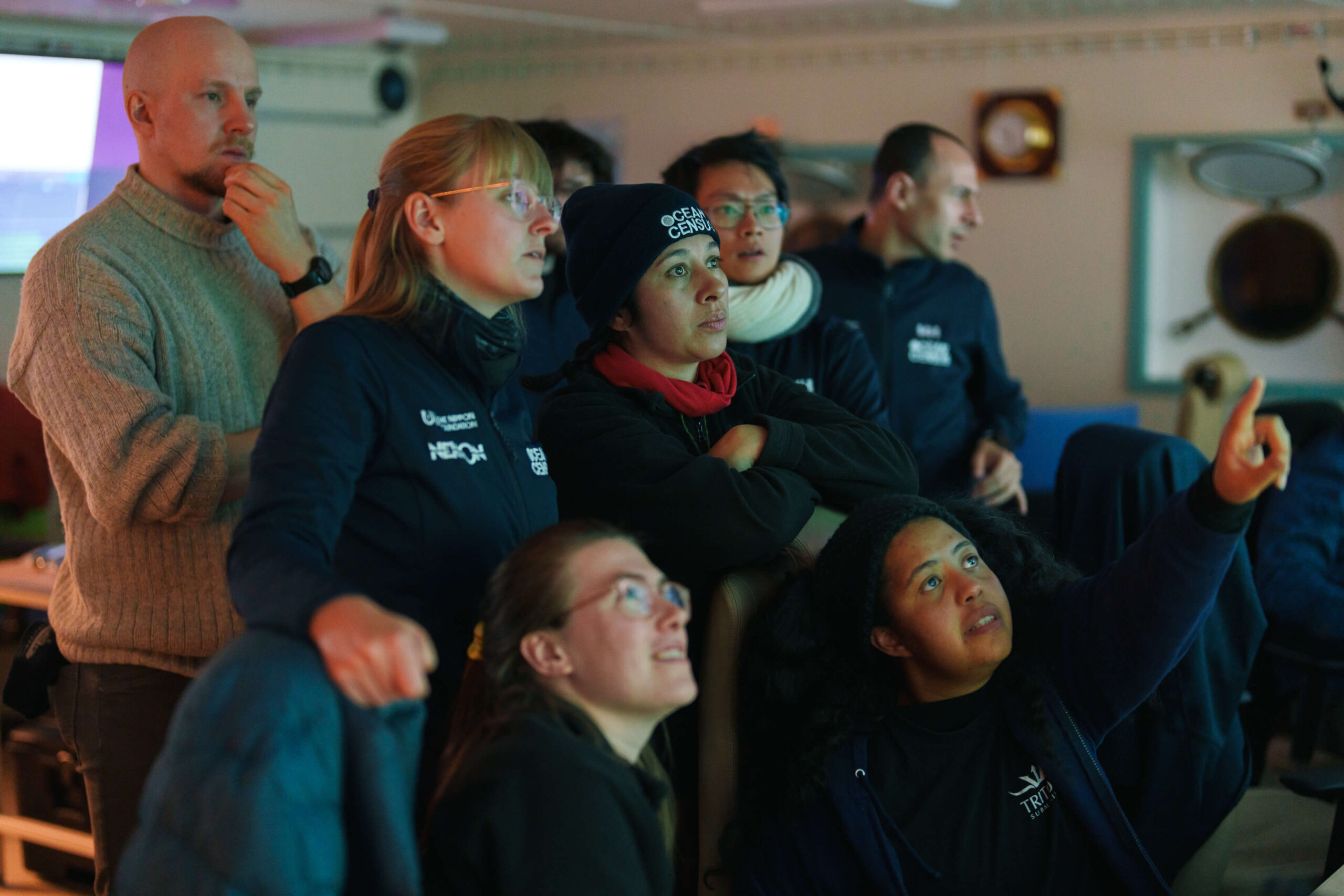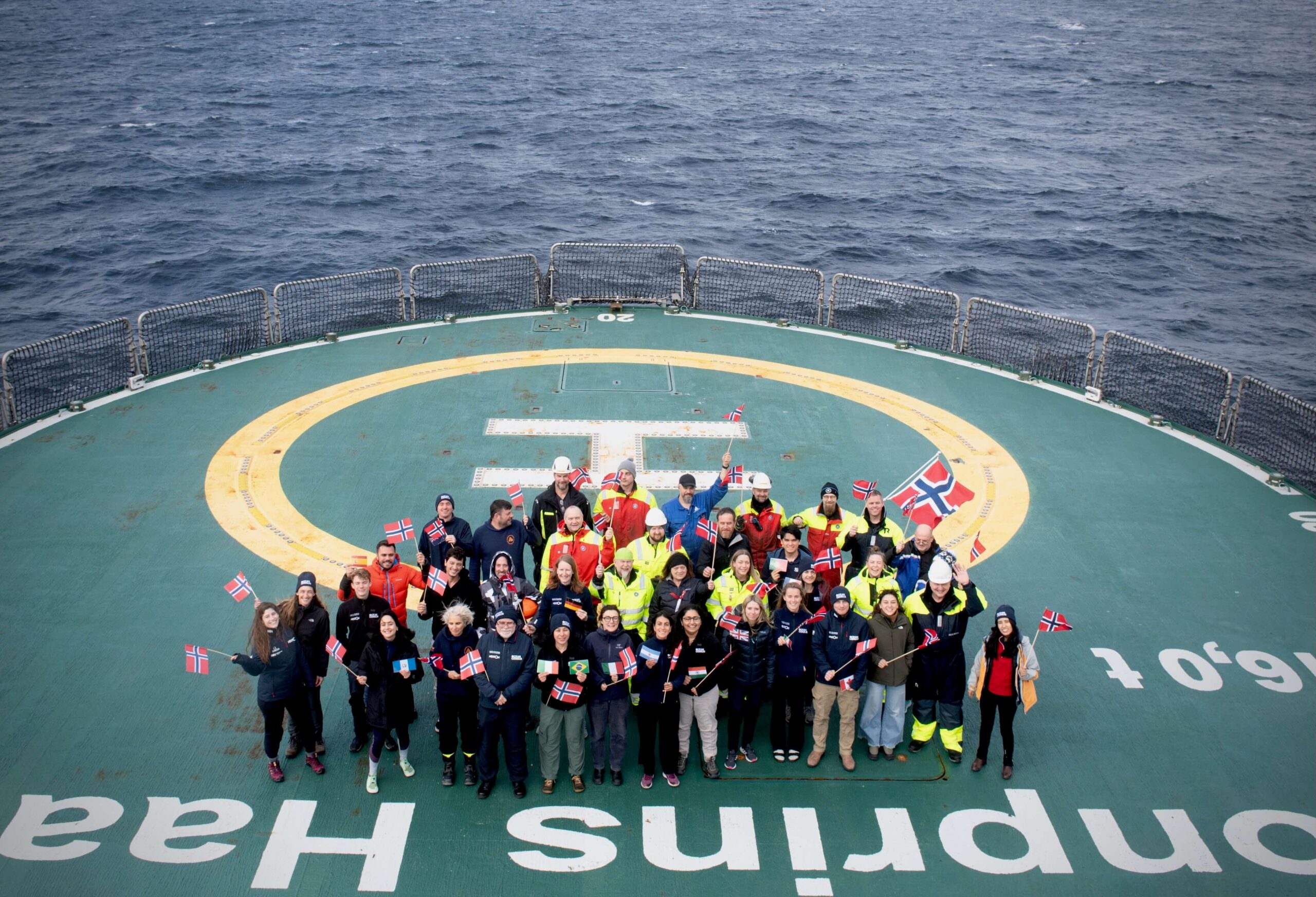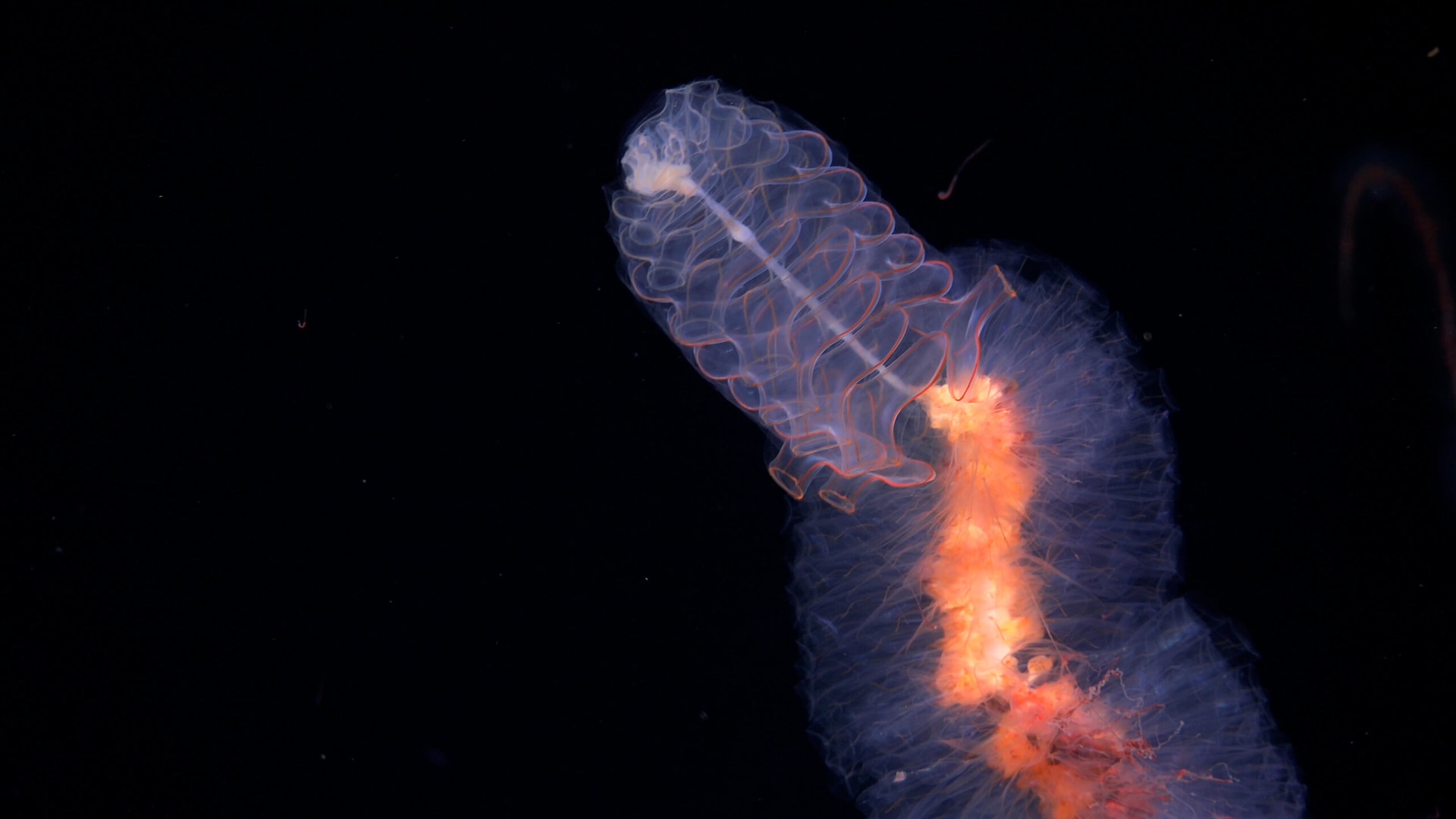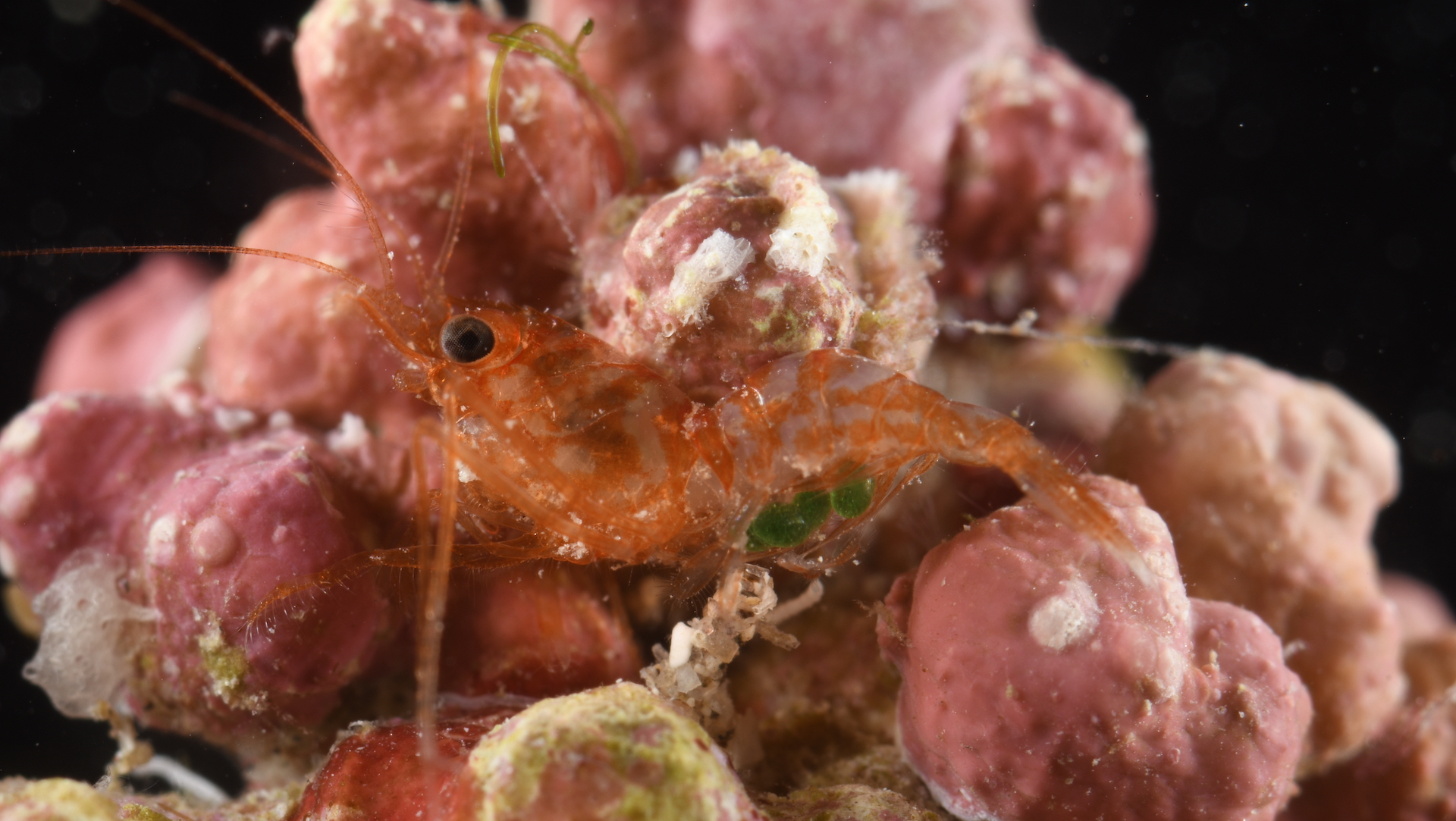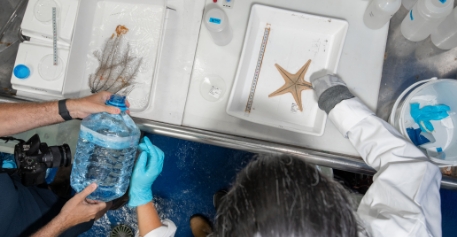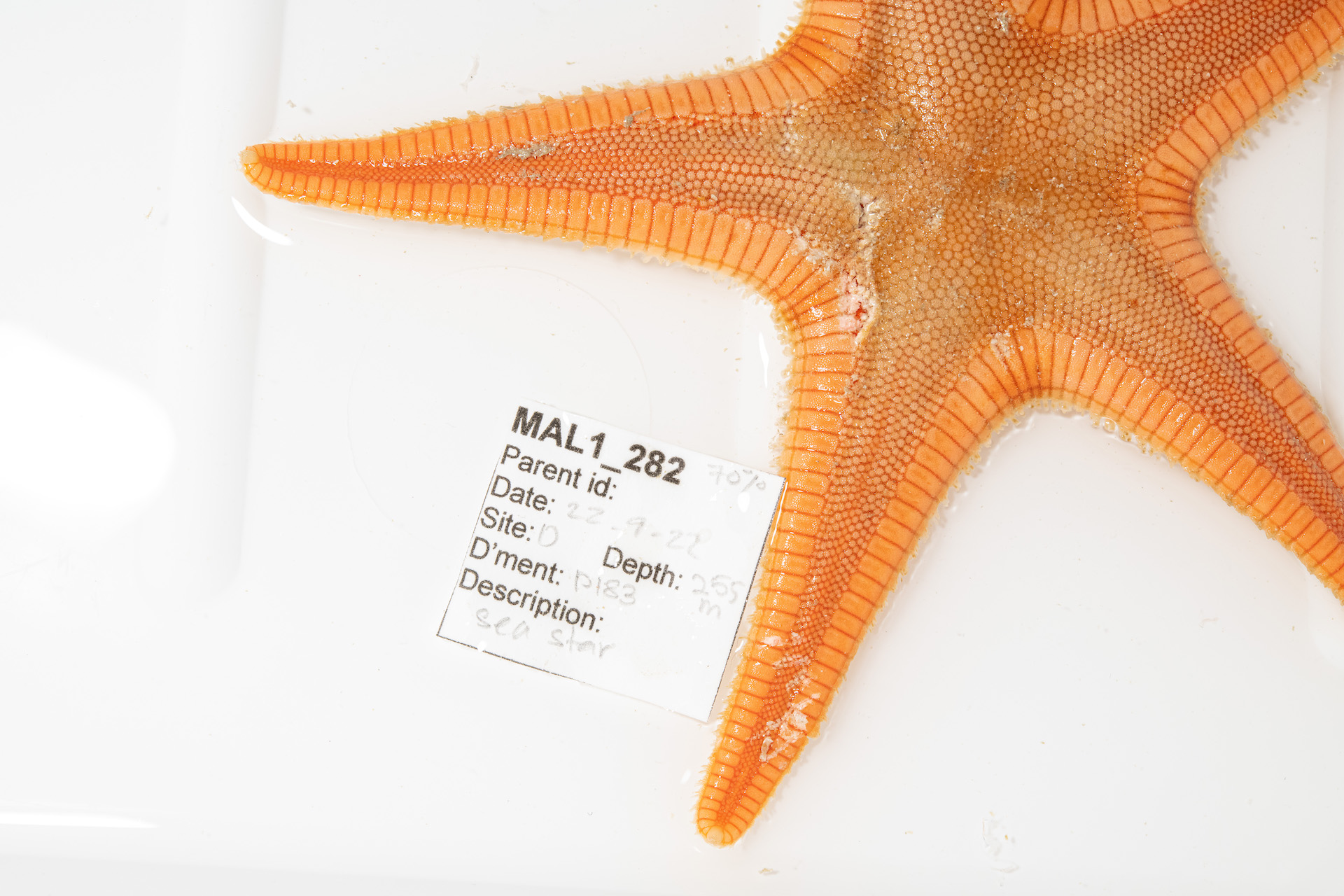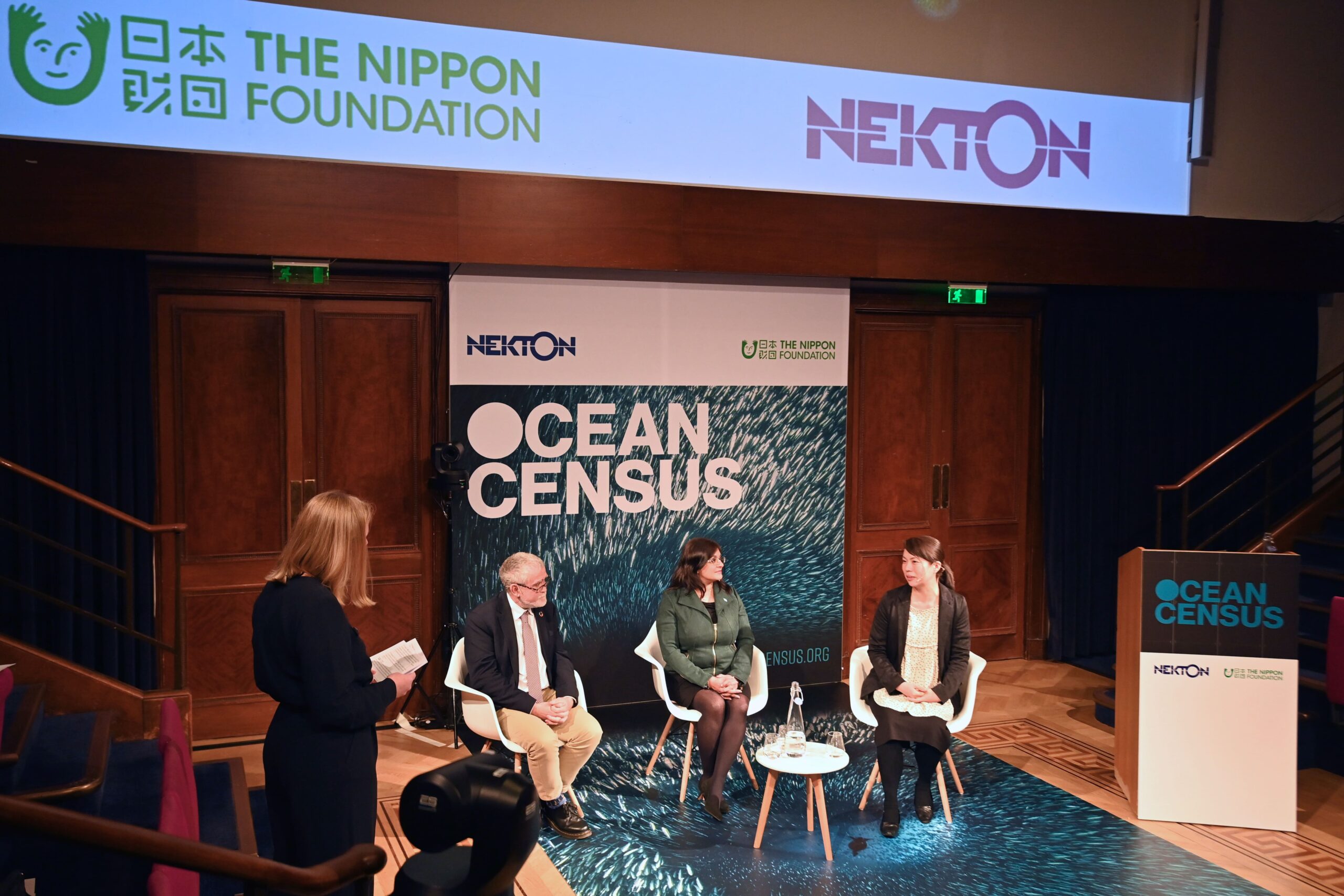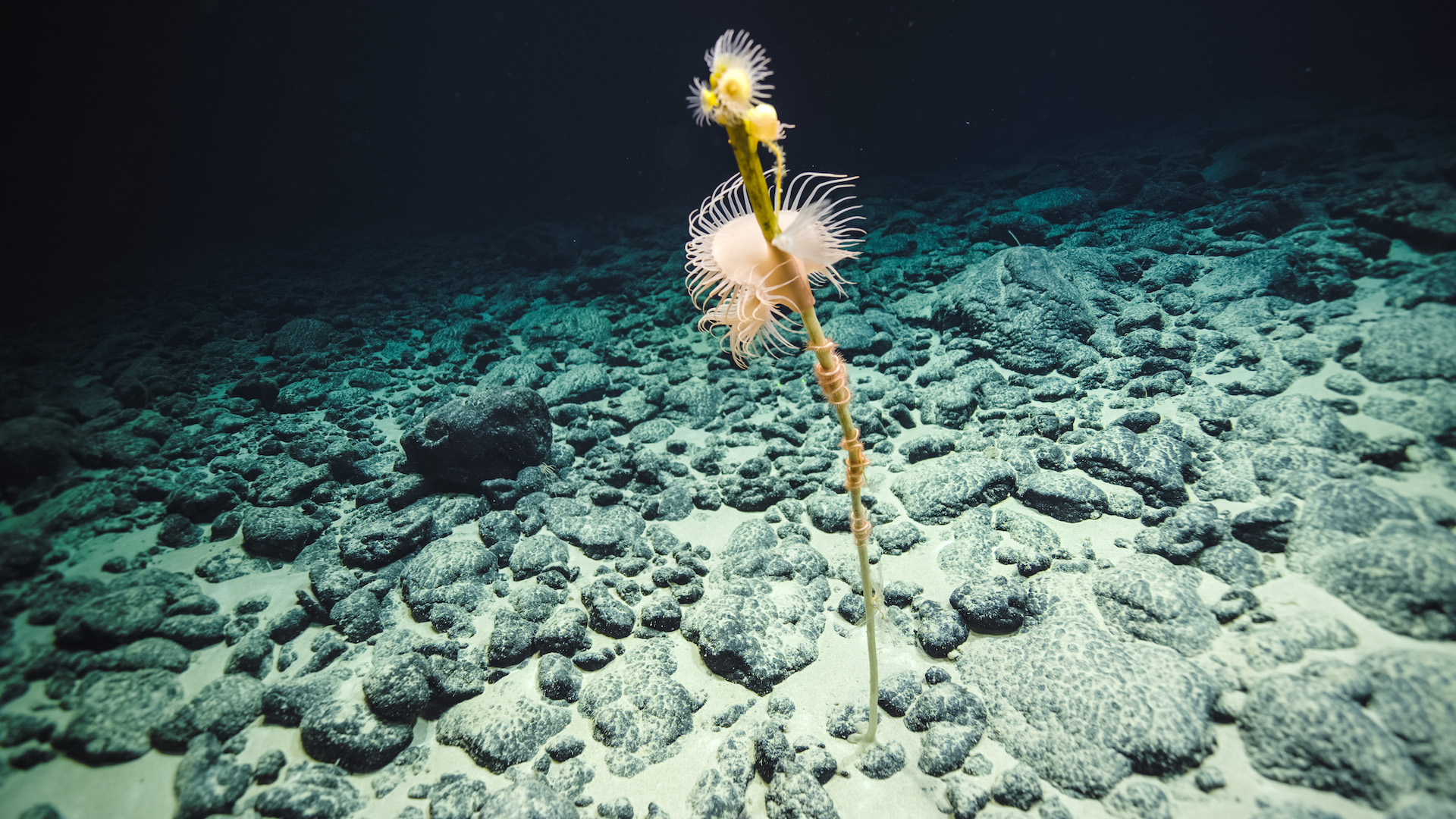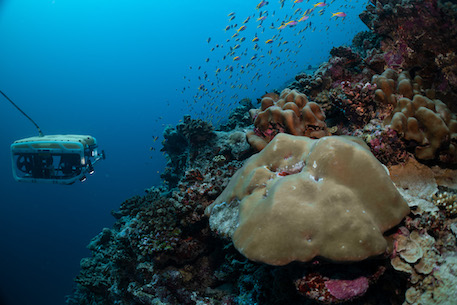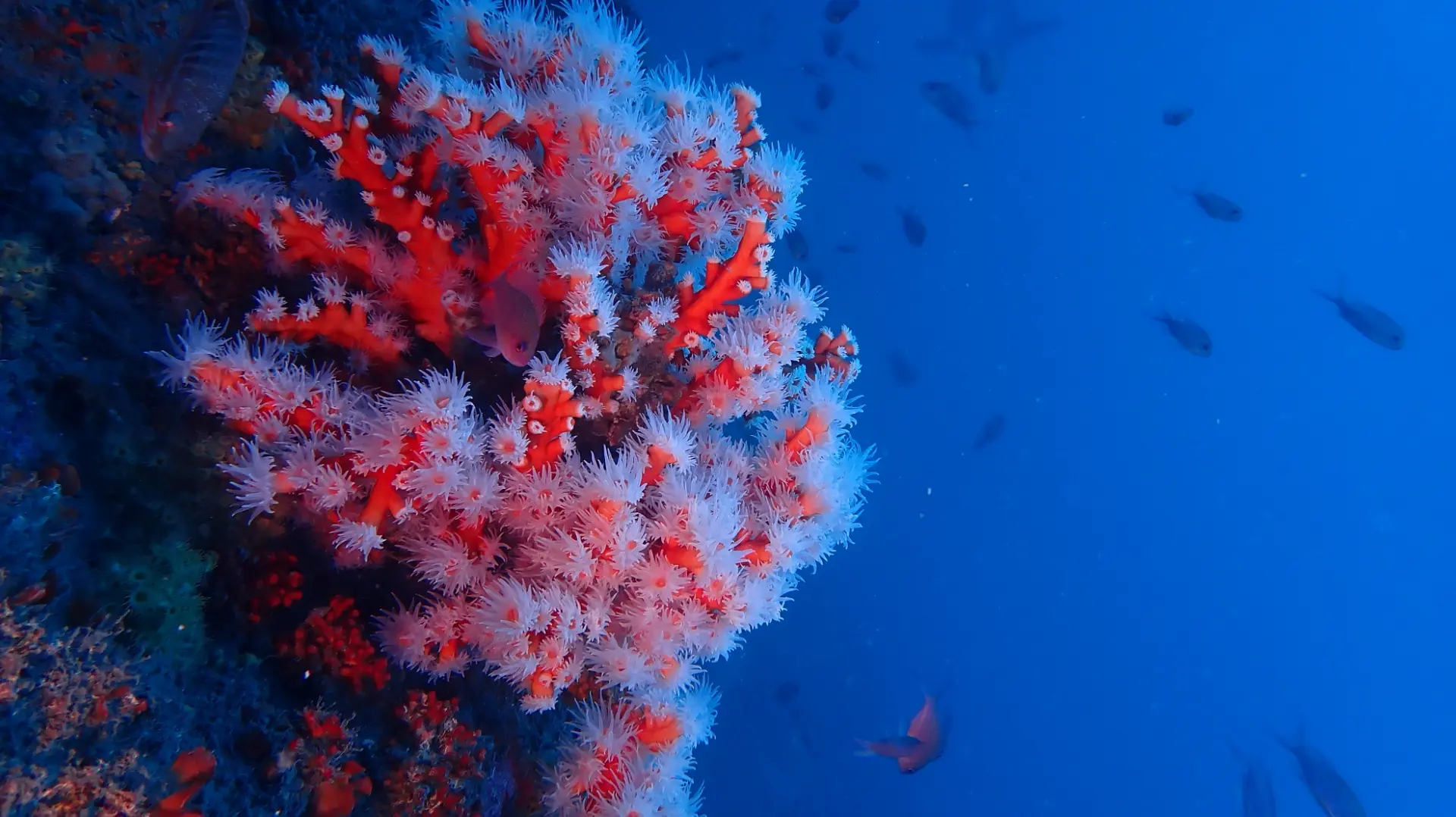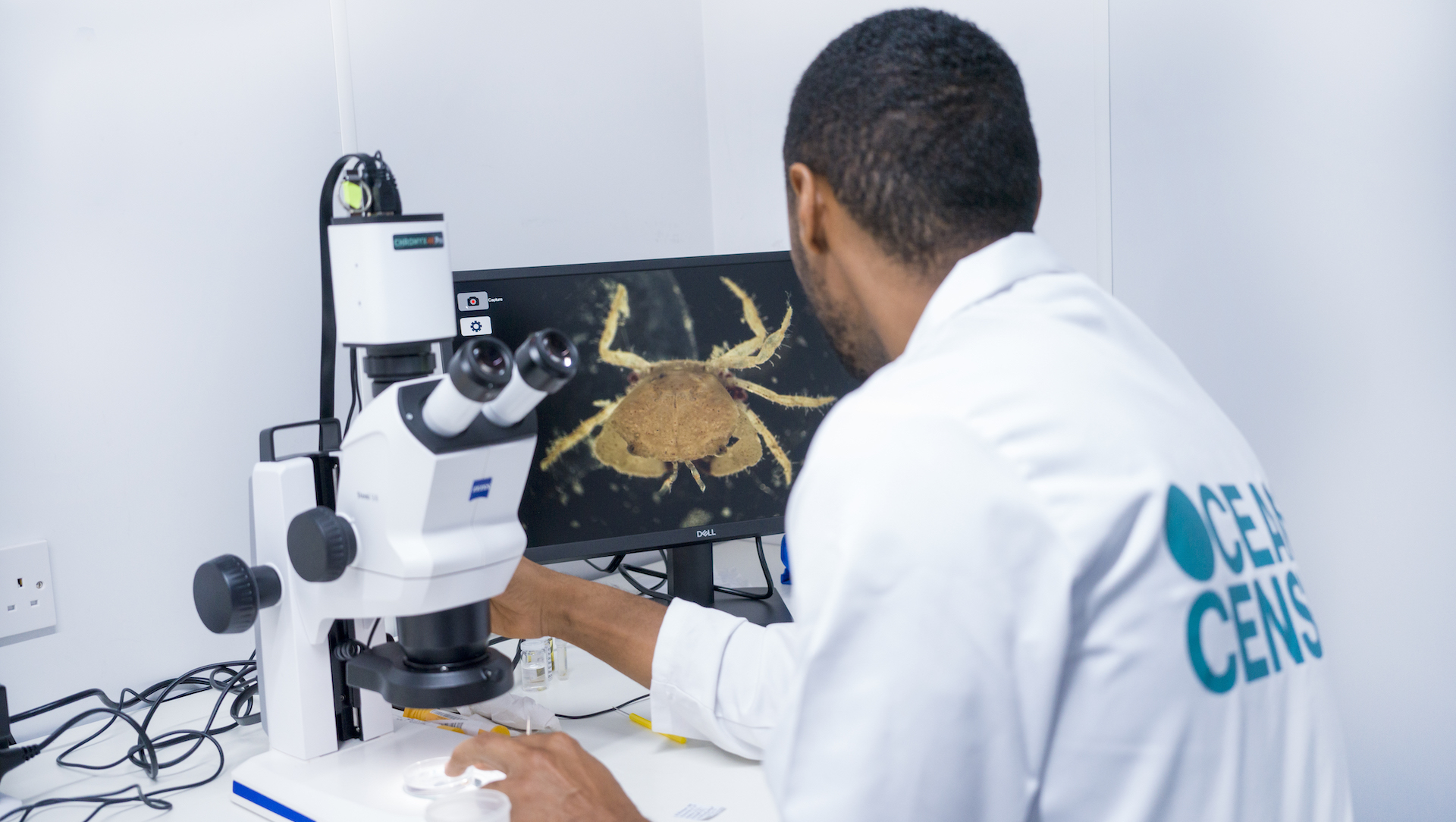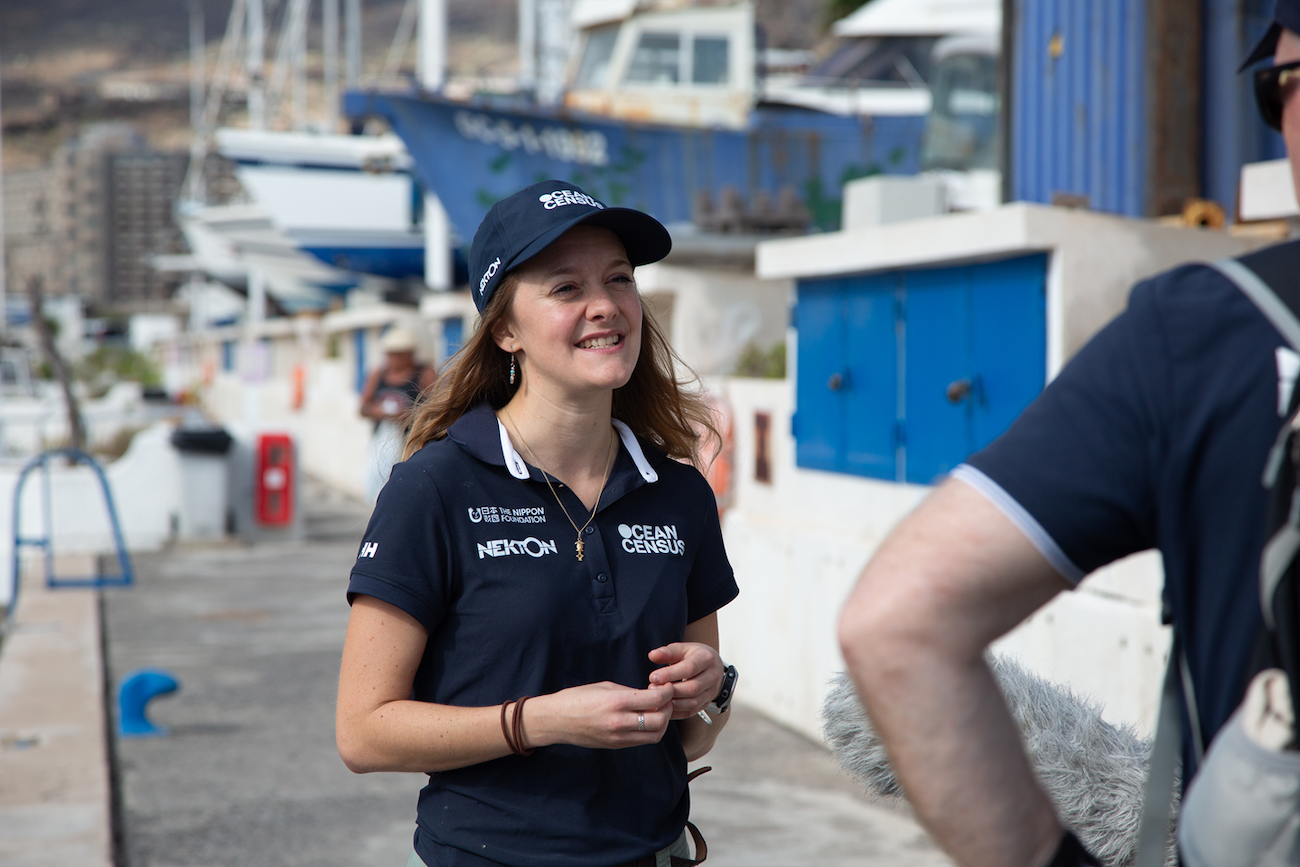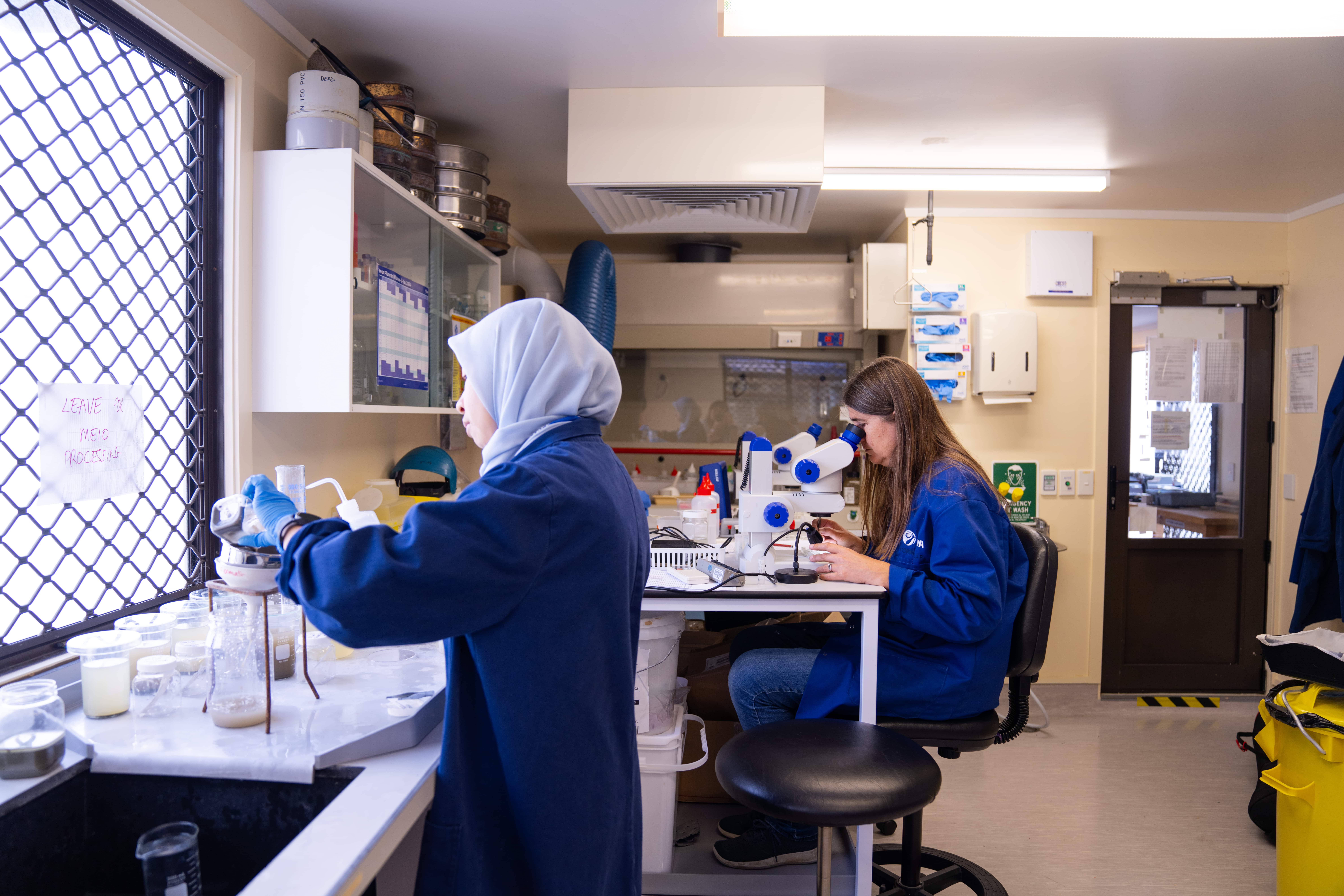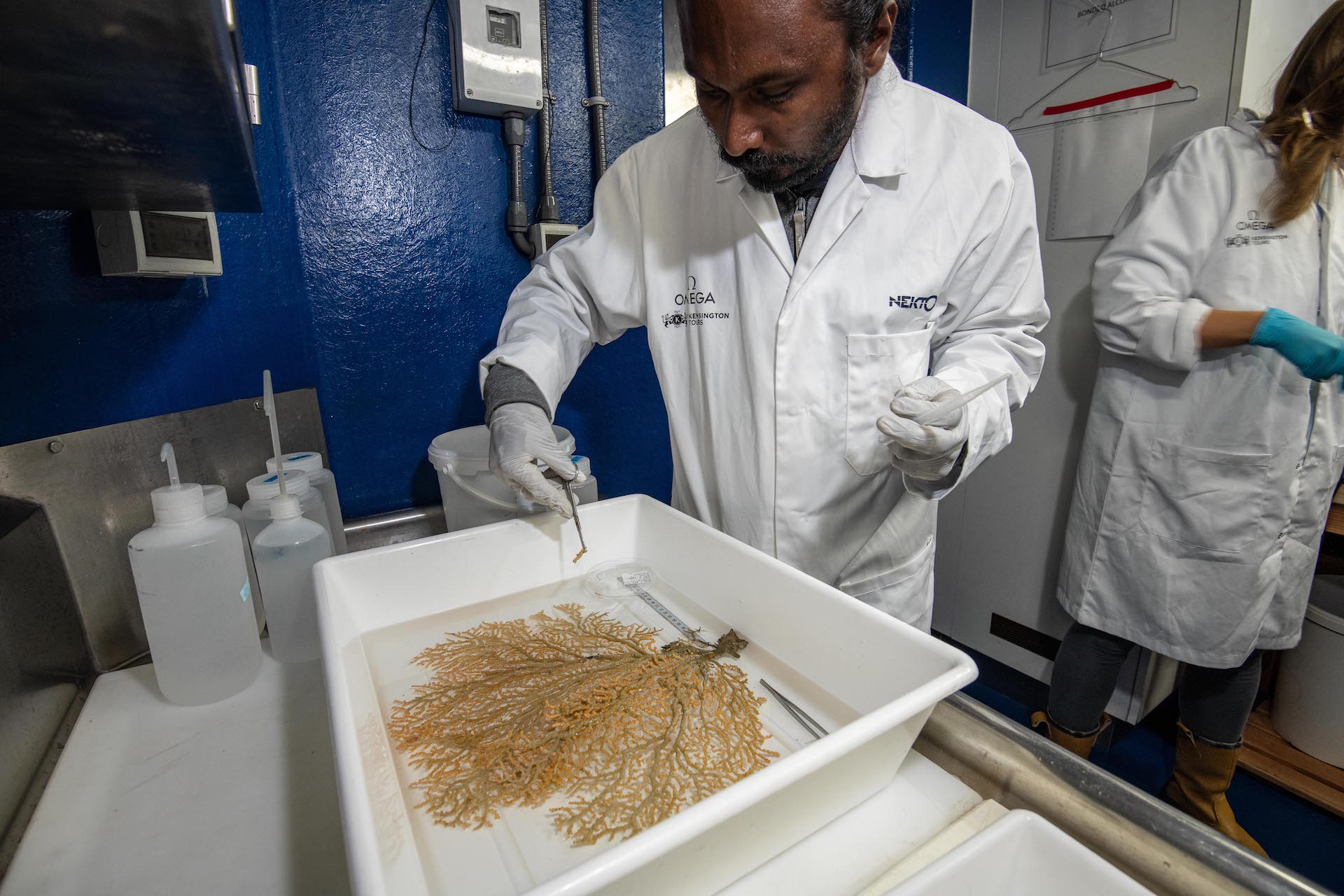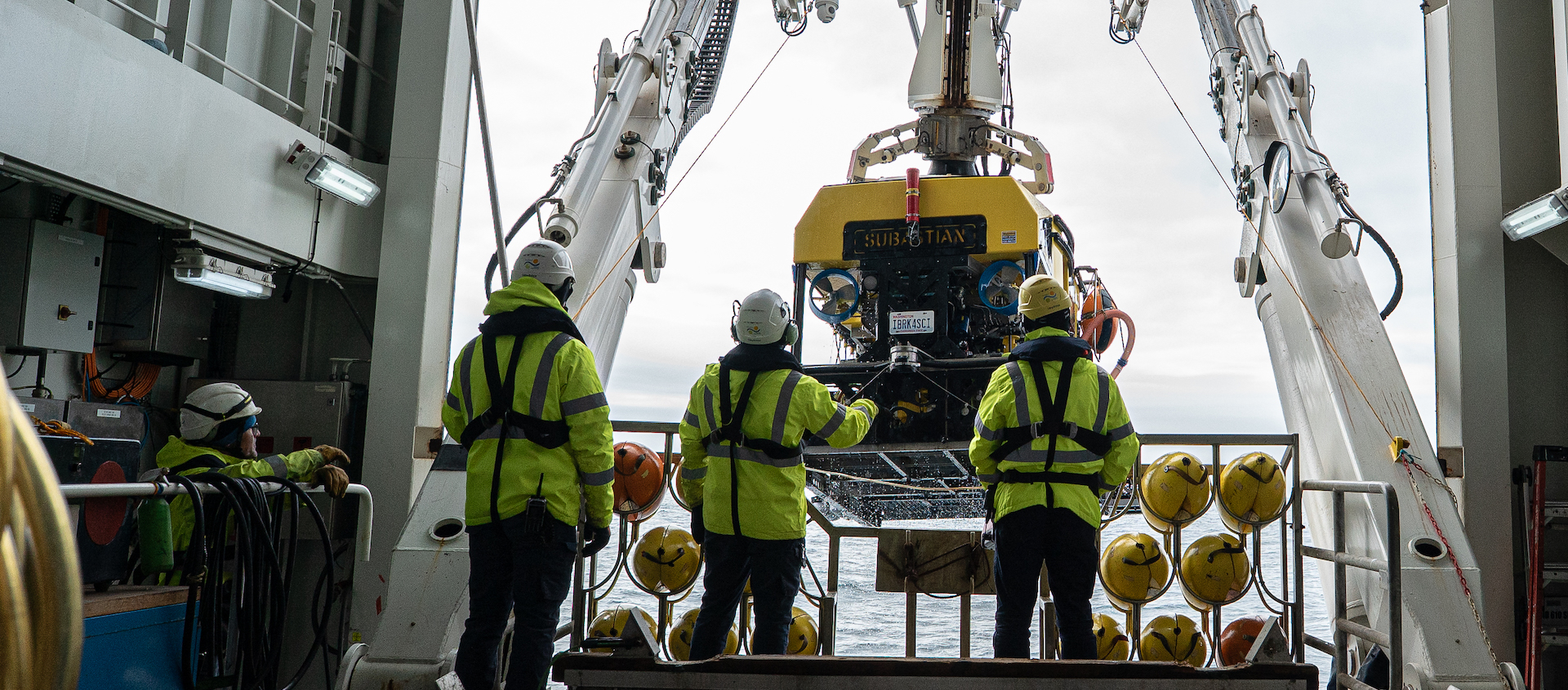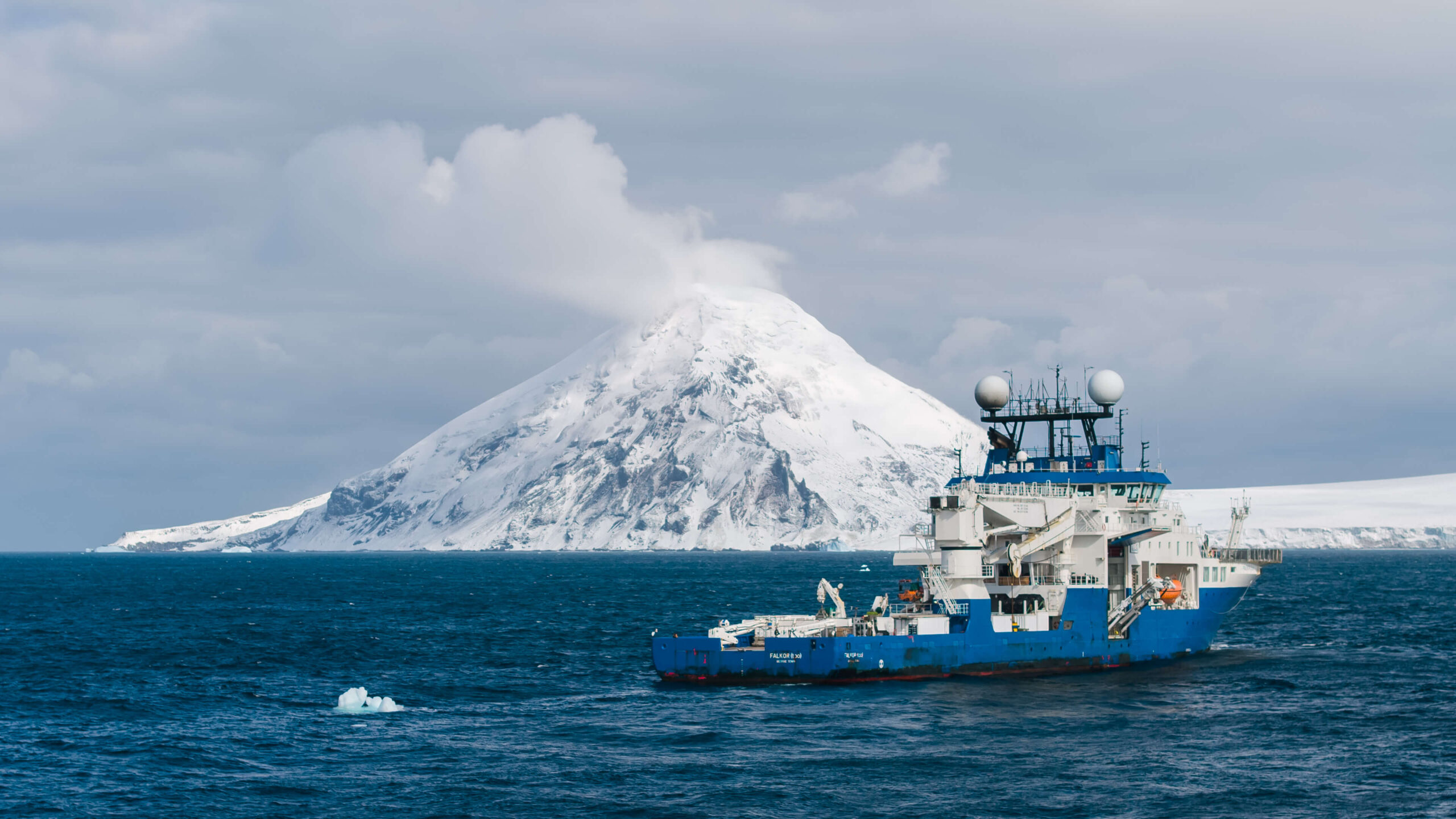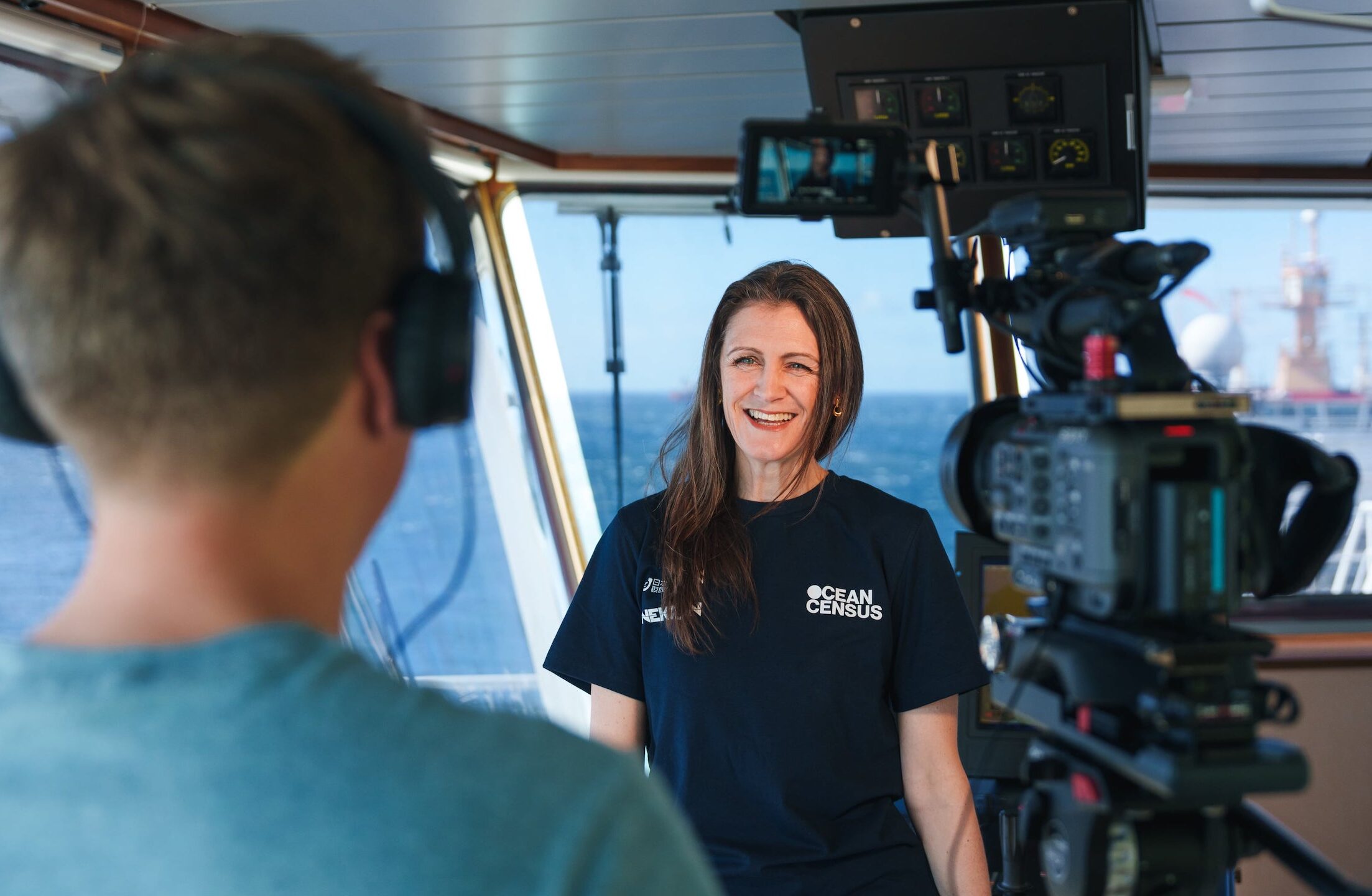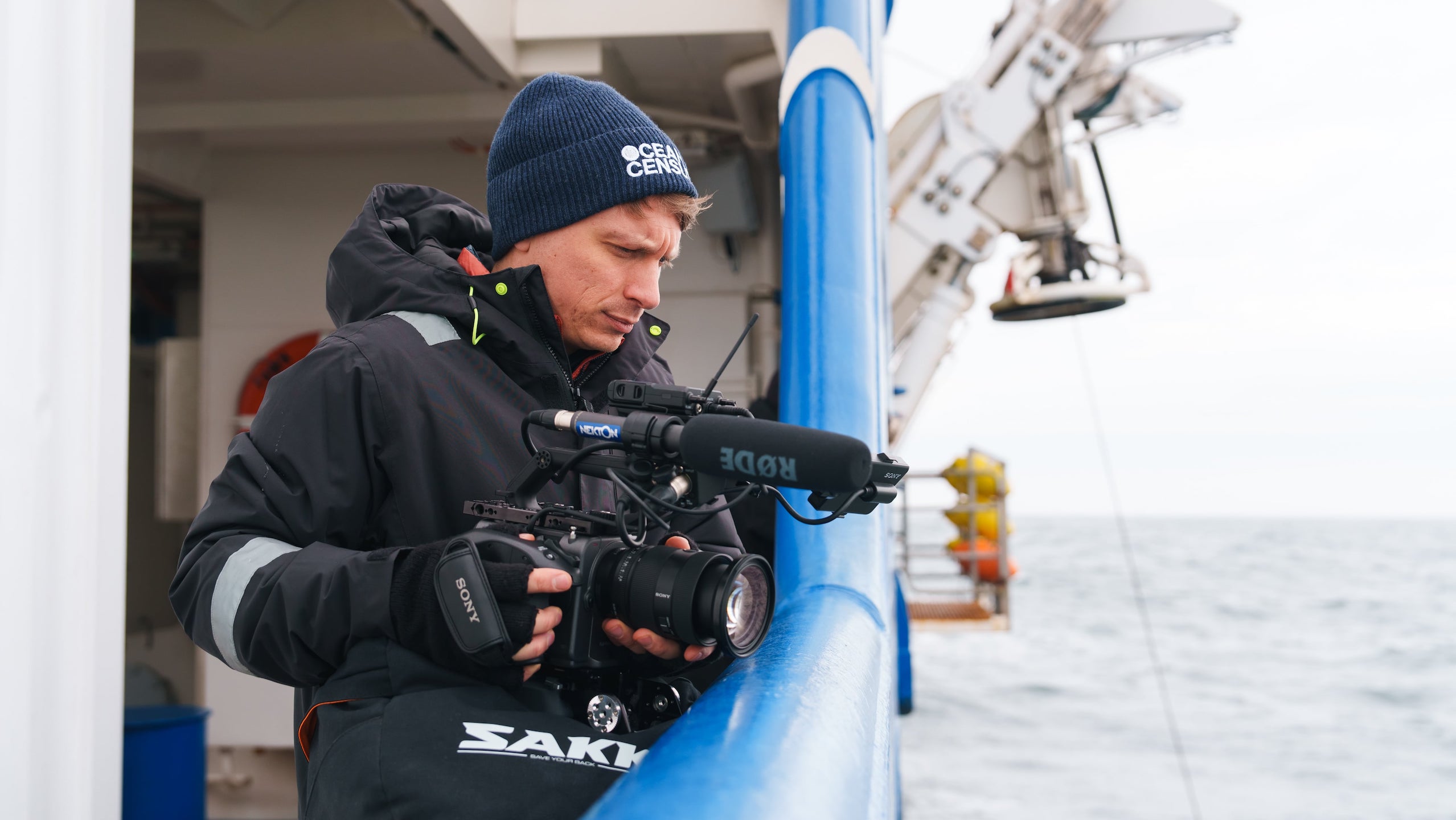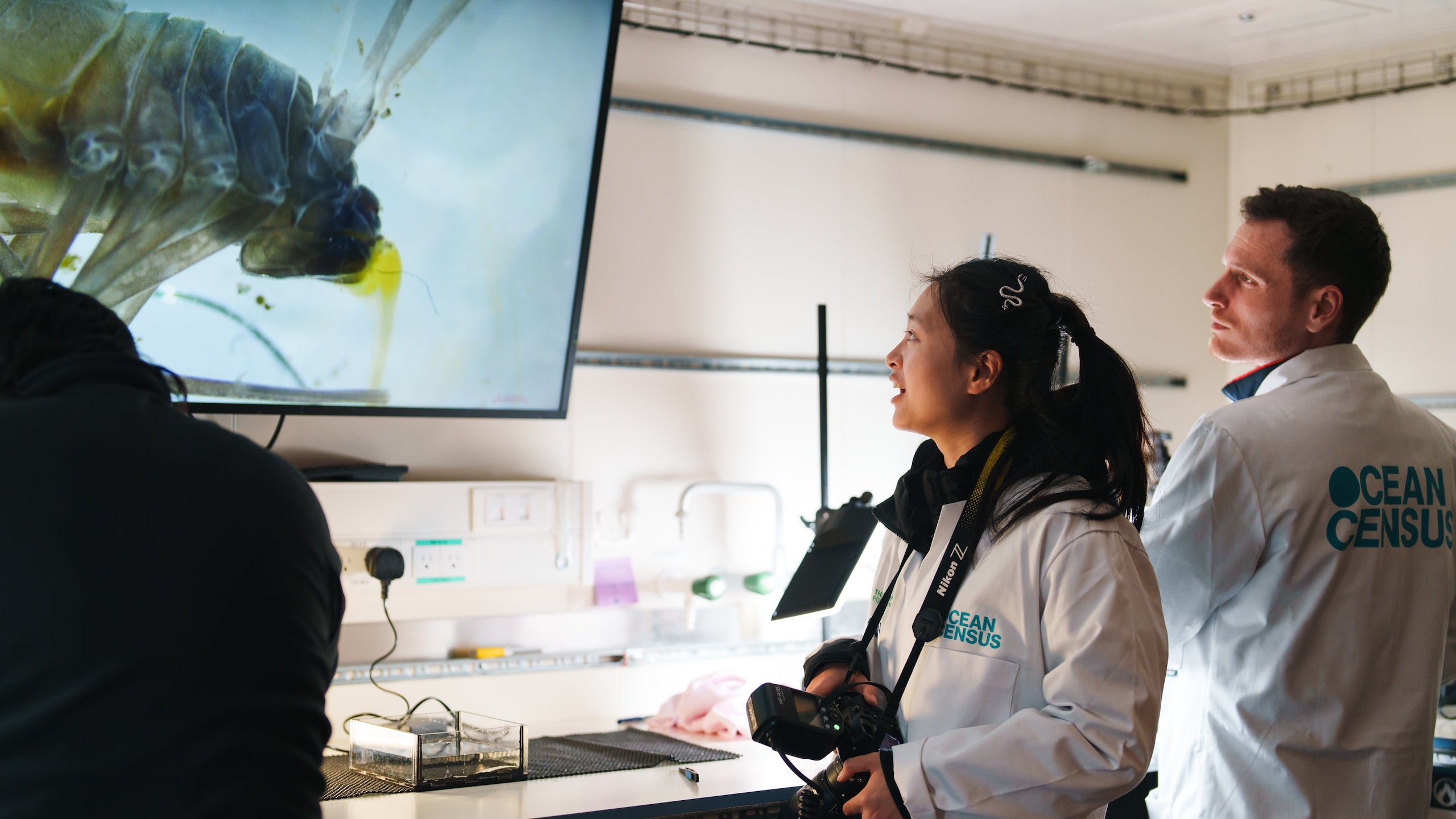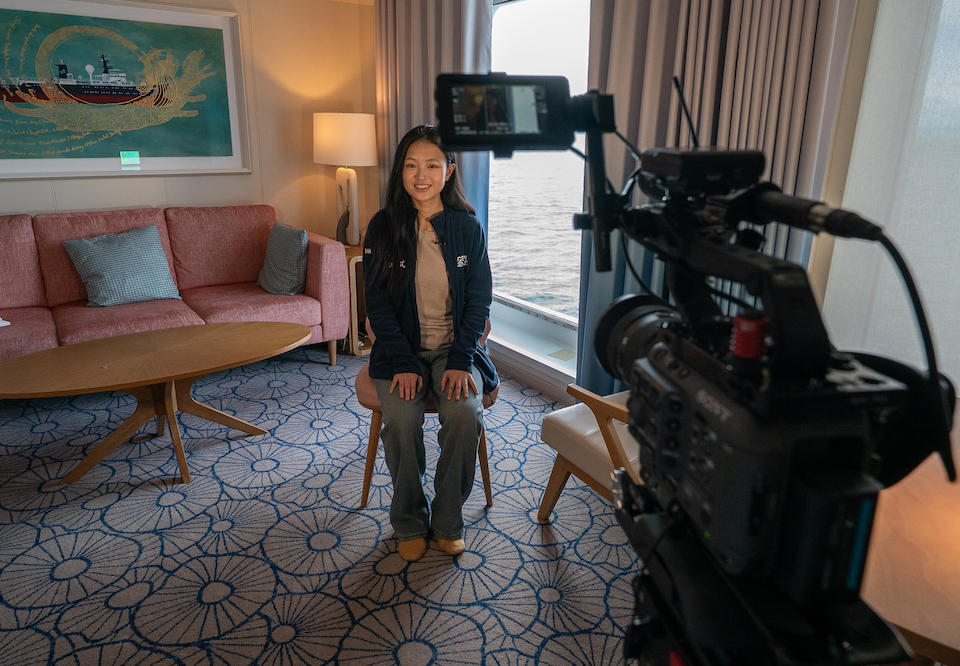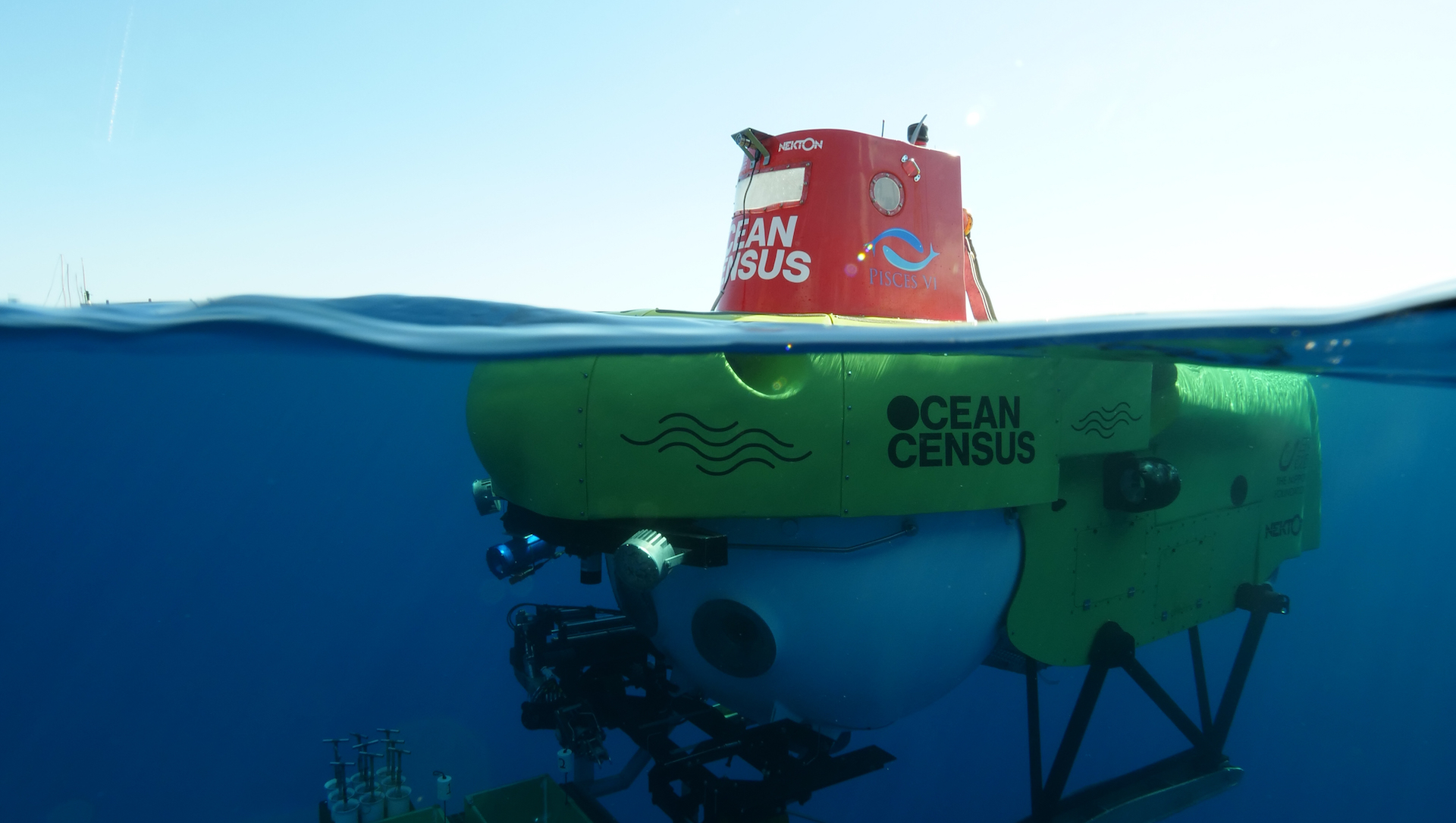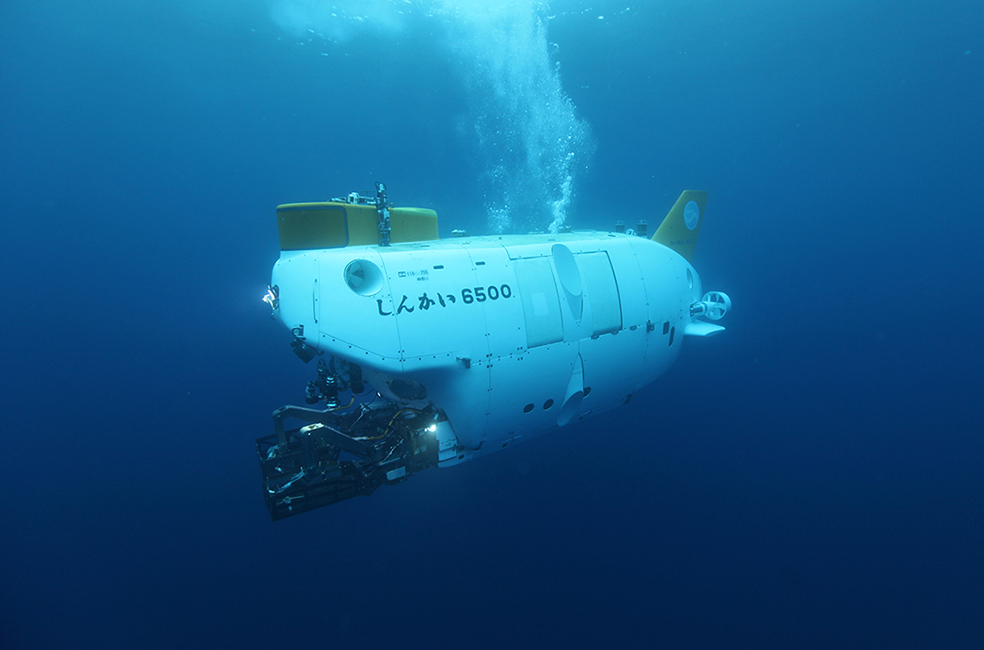
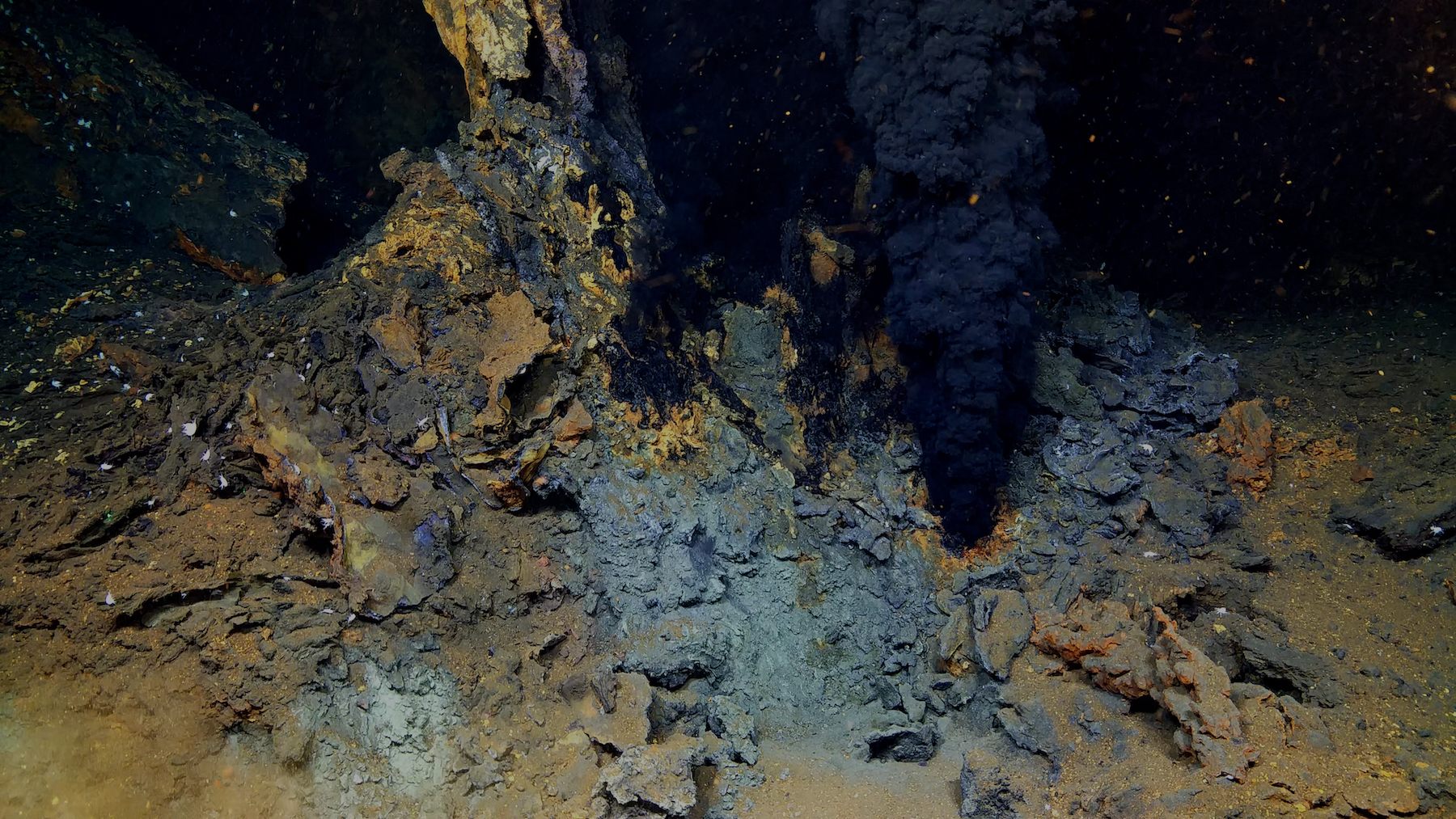
PRESS RELEASE: Arctic Deep Expedition Launched

PRESS RELEASE: Arctic Deep Expedition Launched
Ocean Census Arctic Deep: Expedition Launched to Reveal Undiscovered Life in the Arctic Depths
The Ocean Census Arctic Deep Expedition is set to redefine our understanding of the biodiversity of the deepest Arctic Ocean marine habitats. Led by The Nippon Foundation-Nekton Ocean Census Alliance, UiT (The Arctic University of Norway), and REV Ocean, this groundbreaking expedition brings together a multidisciplinary team of 36 scientists and media experts from 15 leading academic institutions to discover, research, and document this underexplored region.
“Ocean Census has a rare opportunity to delve into some of Earth’s most extreme and uncharted habitats – from hydrothermal vents, abyssal plains, and mid-ocean ridges to seamounts and gas and oil seeps. These remarkable environments harbour an abundance of undiscovered life forms, and we anticipate uncovering hundreds of new species, ranging from sponges to corals, sea anemones, snails, small crustaceans and animals which feed off chemical energy like beard worms.”
Prof. Alex Rogers, Science Director at Ocean Census
“In our relentless pursuit to unveil the mysteries of the ocean depths, the Ocean Census Arctic Deep Expedition stands as a testament to our commitment to marine discovery and conservation. Through collaborative efforts and cutting-edge technology, we strive to shed light on the undiscovered life thriving in the Arctic depths, paving the way for a deeper understanding of our planet’s precious ecosystems”
Yohei Sasakawa, Chairman of The Nippon Foundation.
Departing from Tromsø, Norway, on May 3rd aboard the Institute of Marine Research’s RV Kronprins Haakon, the Ocean Census Arctic Deep Expedition is the first leg of UiT’s EXTREME24 mission. Equipped with REV Ocean’s 6000-metre-rated ROV Aurora, the expedition will sample and film the remote and enigmatic marine environment of the Fram Strait passage between Greenland and Svalbard. The research area encompasses a wide range of deep-sea habitats, including the Knipovich Ridge, Dumshaff Abyssal Plain, Jøtul vent field, Svyatogor Ridge, Alta Seamount, and Molløy Deep – the deepest point in the Arctic Sea at 5550 metres. Some of these unique habitats are being targeted for deep sea mining.
“I am excited to collaborate with a team of scientists and students from across the globe and with important institutions during this expedition, and proud that the knowledge we’ve gathered at UiT thus far has been instrumental in meticulously planning this voyage. The insights we gain will not only advance scientific understanding but will also be crucial for developing strategies to protect our planet.”
Prof. Giuliana Panieri, Professor at UiT and expedition leader
Following the expedition, in October 2024, a taxonomic workshop will be hosted by Ocean Census and UiT at their university labs in Tromsø to accelerate the species discovery and taxonomic work from the specimens collected. The resulting curated collection will be housed at the Arctic University Museum of Tromsø, providing a valuable resource for future research endeavours and contributing to the global understanding of marine biodiversity in the region.
“We are excited to support UiT and Ocean Census on the Extreme24 cruise to the Arctic and Barents Sea. This is a unique opportunity to explore some of the most remote and uncharted regions of our planet, while making the best use of REV Ocean´s Aurora ROV.”
Nina Jensen, CEO of REV Ocean
Ocean Census, a 10-year international scientific endeavour endorsed by the UN Ocean Decade, is dedicated to transforming the discovery of ocean life. Spearheading collaborative efforts with partners such as UiT, REV Ocean, and the Ocean Census Science Network community, this initiative was founded to address the critical knowledge gap surrounding marine biodiversity.
Launched in 2023 by The Nippon Foundation and Nekton, Ocean Census operates as an open Alliance of scientists from over 280 institutes and numerous government, scientific, business, technology, civil society, and philanthropic partners, working collectively to use pioneering technological advancements to tackle an issue with profound global significance.
With an estimated 1-2 million marine species awaiting discovery, Ocean Census champions and coordinates a diverse, global network to enhance oceanic exploration and understanding. Using innovative techniques, such as ‘cyber taxonomy’ to accelerate species discovery, Ocean Census has set an ambitious milestone of 100,000 species discoveries over the next 10 years. Entering its second year, The Arctic Deep expedition promises to build on the momentum of previous expeditions to areas like the Bounty Trough in New Zealand and the Macaronesian Archipelago, which have led to over 350 new species discoveries and counting.
Keep up to date with the latest Arctic Deep expedition news:
With an emphasis on immersive and inclusive storytelling, Ocean Census will have an award winning team of videographers, photographers and visual artists onboard. For regular expedition news throughout, follow @oceancensus on social media.
Find out more about the Ocean Census Arctic Deep Expedition.
Featured Image Credits: REV Ocean
Join the census
An Alliance of scientists, governments, marine research institutes, museums, philanthropy, technology, media and civil society partners.
